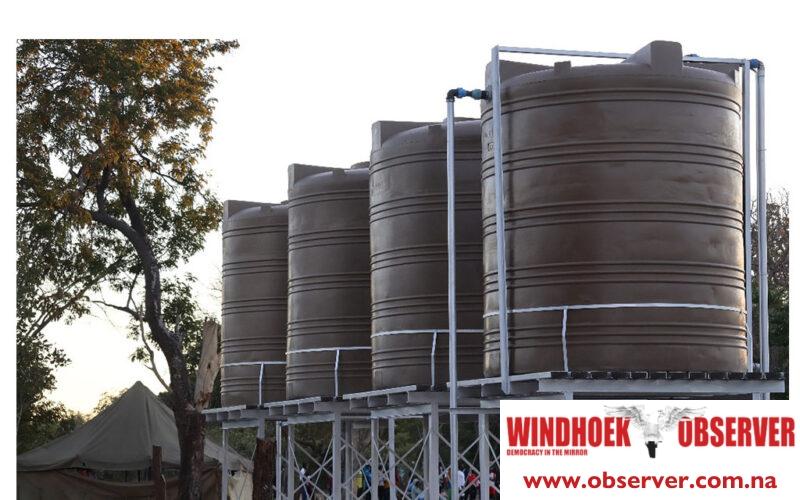Niël Terblanché
Prime Minister Elijah Ngurare has delivered on what he called a step towards rural economic independence by handing over four newly drilled boreholes that will supply safe drinking water to twenty-three villages in Epembe Constituency.
Speaking at the Onamundindi installation on Saturday, Ngurare said the project reflects the 8th Administration’s commitment to extending essential services beyond urban areas.
“Economic independence means that people in rural areas should have the same access to essential services as those in urban centres. That includes water, road infrastructure, and connectivity. We are witnessing progress toward that goal,” he said.
He encouraged residents, especially young people, to use the water to grow backyard gardens.
“Use this water to feed yourselves and build resilience when the rains fail,” he said. He added that the government may buy local produce for drought-relief programmes. “The broader aim is for our communities to grow what they eat and even sell their surplus back to the state,” he said.
The project includes four boreholes strategically located to serve surrounding communities.
The Oshipya borehole will supply water to Oshipya Centre, Ohamenya, Ohenghono, and the two Omupanda settlements.
At Onamundindi, the second borehole will provide water to Onamundindi, Onangolo West, Ohaimbudu, Ohakafiyona, Oukala School, and nearby homes. Further east, the Onesio borehole will supply seven settlements, including Onesio, Olungu North, and Okamangwena.
The fourth installation at Eshii will serve five villages, including Omito, yeKombo, and Omayi.
Ngurare said the new infrastructure will ease the burden on residents.
“In the dry season, we used to queue for hours at a single tap. Now mothers can fetch water close to home, and our schools will keep their gardens green,” he said.
He highlighted the health and hygiene benefits of the project.
“Clean, reliable water will cut the incidence of diarrhoeal disease and allow clinics to maintain proper hygiene. When you consider that some households walked more than five kilometres for a bucket, the impact is enormous,” he said.
Ngurare reminded residents that the success of the initiative depends on how well they take care of the infrastructure.
“Water alone will not transform the constituency. It is up to all of us to maintain what has been built,” he said.




